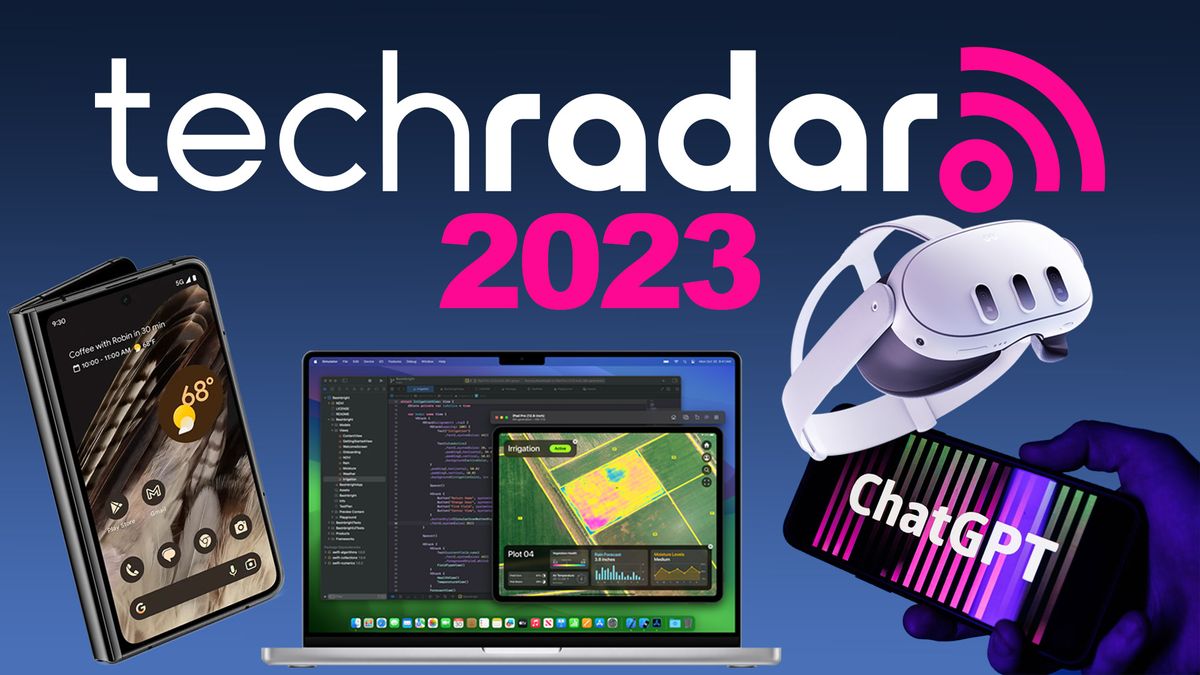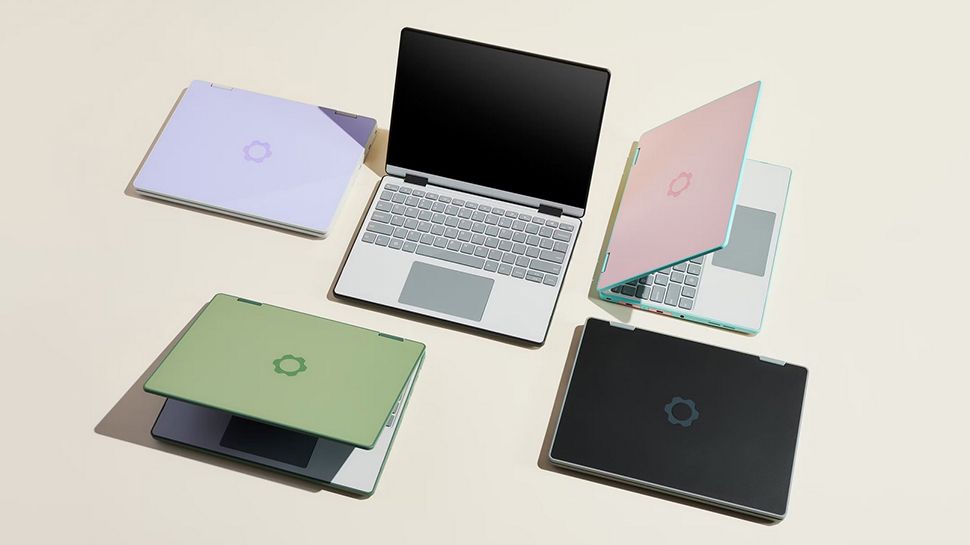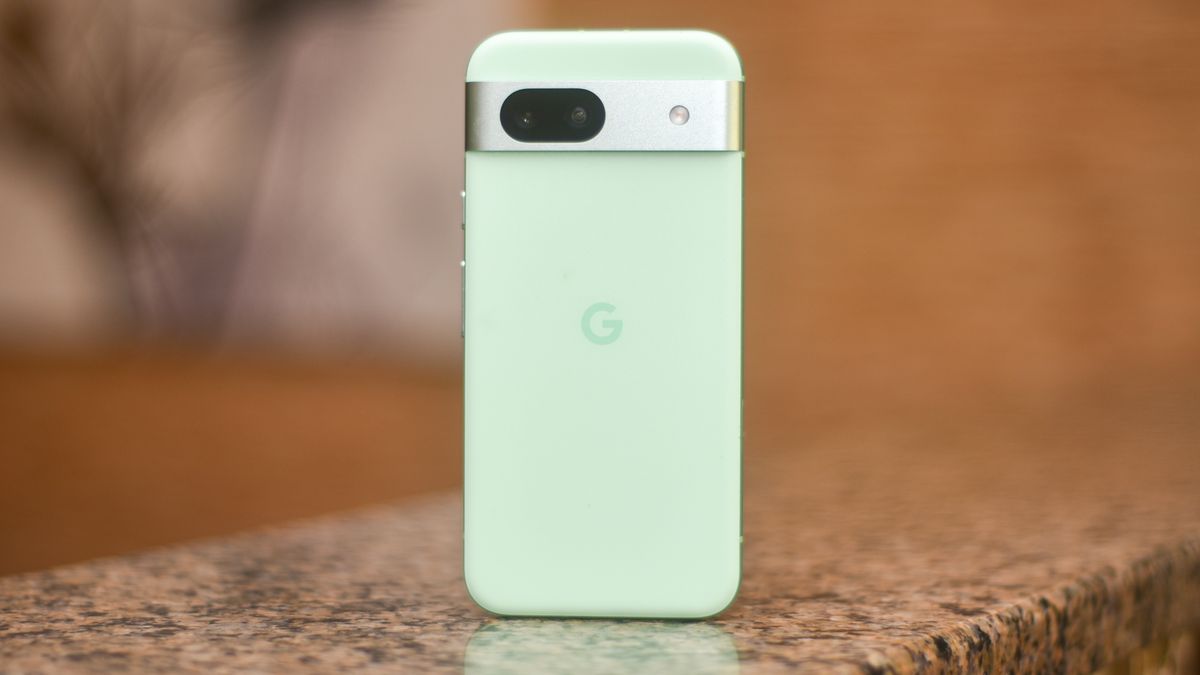If I had to sum up 2023 in one word it would be AI. Okay, technically that’s two initials, but let’s not quibble – because there’s no doubt that it provided the year in tech with its main story arc.
Artificial intelligence was everywhere this year, as every company in the world gawped at the massive impact of ChatGPT, and decided they wanted to jump aboard that bandwagon. You could barely move for new chatbots, new image generators, and new AI-enhanced features in every device released in 2023. And there’s no sign of that changing in 2024; in fact, we expect it to be an even bigger deal.
Elsewhere, phones and laptops did much the same as they had the previous year – well, except where they had new AI-enhanced features – so it was in the virtual reality space where bigger changes were afoot. If the Meta Quest 3 was impressive then the Apple Vision Pro looks to be genuinely game-changing, and we can’t wait to see what impact it has in the next 12 months.
Of course we also saw plenty of exciting developments in the TV, audio, wearables, camera, and entertainment worlds this year, and you can read all about them below.
Have a happy new year!
Marc McLaren, UK Editor-in-Chief
The year in AI
AI: our new bestie, or the biggest threat we’ve ever faced?

2023 was the year AI grew up and scared the heck out of us, writes Lance Ulanoff, US Editor-in-Chief. At the tail end of 2022 it was barely a toddler – we’d been introduced to OpenAI’s astonishing ChatGPT, but we had no idea of the extent to which that single chatbot, and the large language model behind it (GPT), would define the coming 12 months.
As people pressed the generative AI to understand what it could and couldn’t do, we encountered a whole new kind of tech entity. It was both prescient and incredibly fallible. The term AI hallucinations became a topic of conversation, and a cause for concern. Rarely have we had an innovation that we simultaneously believed would change the world, and also potentially ruin it.
ChatGPT’s stunning success quickly sparked a land rush among competitors and partners. Surprisingly, it was Microsoft that next dove head-first into the generative AI waters, revitalizing its moribund search platform Bing with a deep-tissue infusion of GPT, the LLM behind ChatGPT. As a favored partner of Open AI, Microsoft not only had the latest LLM, it also had a bespoke version.
Meanwhile, Google was seemingly caught flatfooted, without a search-based response to what OpenAI or Microsoft were accomplishing. It rushed out Bard, and paid a price for the lack of care taken. Much later, Google would return with Gemini, a much more powerful generative AI that only stumbled when we learned that the best demonstration of it was, in some respects, staged.
AI wasn’t all about chatbots and words. A collection of image-generation tools arrived on Discord (MidJourney), from OpenAI (DALL-E 2), and in one of the world’s most popular image-editing tools (Adobe Photoshop Firefly).
The takeaway around AI in 2023 was not just its power but its accessibility. Virtually anyone at any skill level can use it, but in 2024, as the technology becomes integrated into consumer electronics, we may finally get an answer to the question of exactly how we’ll use it – or how it’ll use us.
THE YEAR IN PHONES
An infusion of new foldables, and an AI revolution beckons
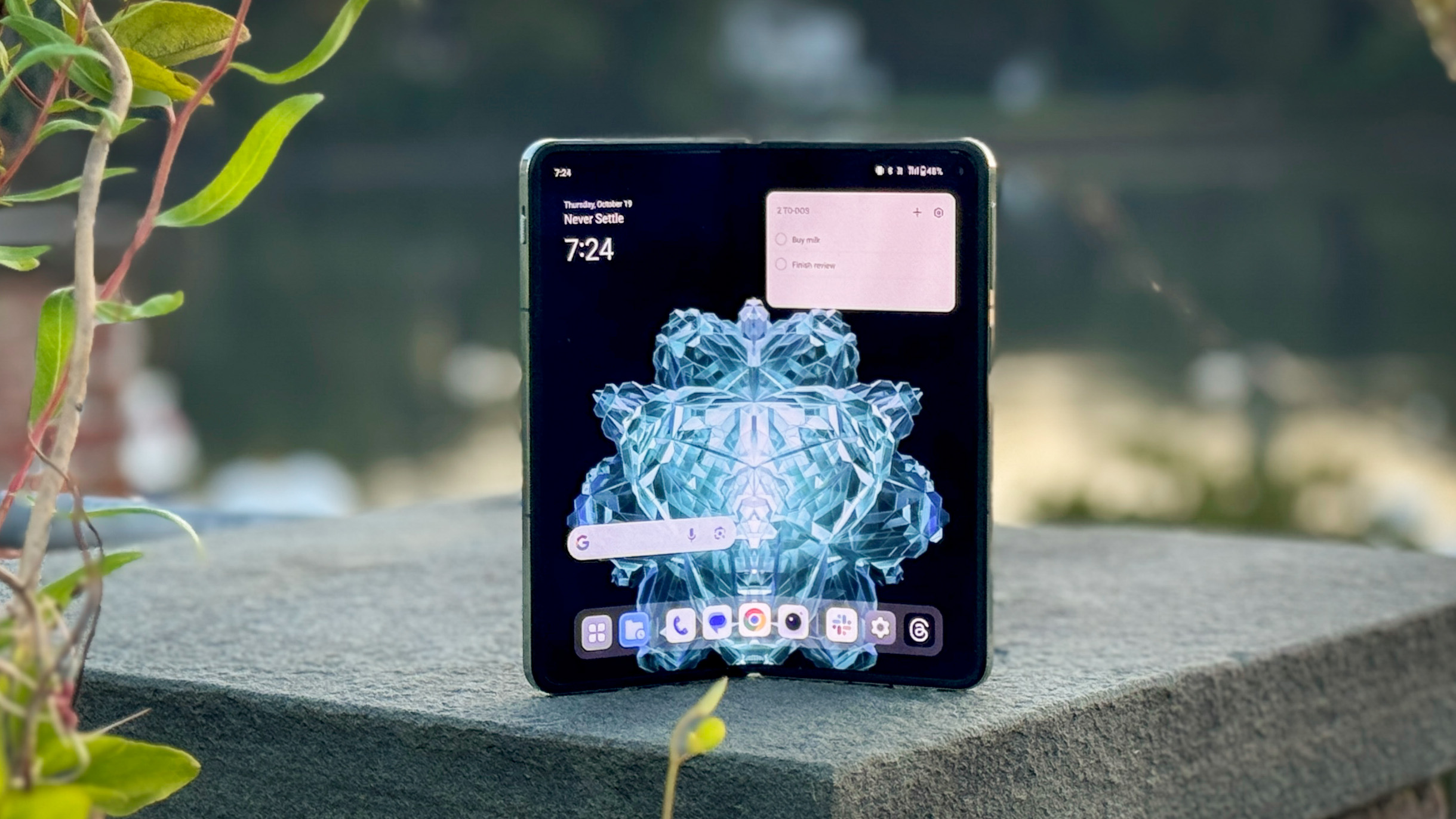

This was an exciting year in phones, but you wouldn’t know it if you only pay attention to the biggest-name brands, writes Philip Berne, US Mobiles Editor. While the year’s best phones again came from Apple and Samsung, upstart brands like OnePlus and good old Motorola swooped in to show off some of the most exciting new phones we’ve seen in a while.
I’m talking about the OnePlus Open and the Motorola Razr Plus, both foldable phones – and if you hadn’t considered a foldable before, now might be the time. Of course, you may be waiting for a foldable iPhone, and rumors this year pushed that phone closer to reality, but it may not be part of Apple’s 2024 vision.
Even if phones didn’t get much better in 2023, at least they should last us longer. Google announced plans to support its latest Pixel 8 and Pixel 8 Pro phones for seven years with major Android updates. Apple has always offered five years of support for its best iPhones, so it’s nice to see Android finally move ahead here. Even the bargain-priced Samsung Galaxy S23 FE will get four years of updates, and hopefully Samsung’s Galaxy S24, which we’re expecting to see early in the new year, will get even better long-term support.
The new year is always a time to think about ‘what’s next’, and what’s next in smartphones is AI, even if nobody knows exactly what AI on a phone looks like. Qualcomm showed off its Snapdragon 8 Gen 3, which is coming to the best Android phones in 2024, and which is optimized to handle AI tasks; but those tasks haven’t really been defined. Samsung is set to bring AI to its next fleet of phones, so we should soon see what AI on a phone means in everyday terms.
THE YEAR IN COMPUTING
M3 MacBook Pros impress as laptop sales take a hit
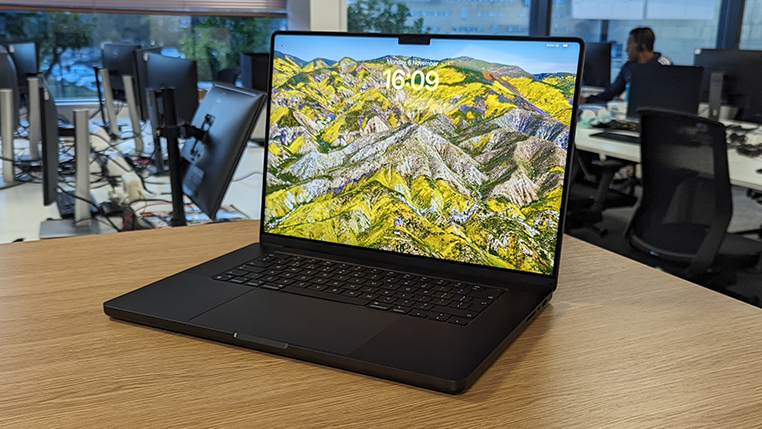

It’s been a bit of a tough year for laptop and computer makers, though this shouldn’t have come as much of a surprise, writes Matt Hanson, Managing Editor, Core Tech. Sales exploded during the Covid lockdowns, as millions of us around the world started working from home and invested in new tech.
Thankfully we’re now a couple of years on from those lockdowns, and life has returned to some degree of normality for most of us – and all those new laptops and PCs we bought are still going strong.
Combine that with a cost-of-living crisis that’s affecting many of us, and it makes sense that in 2023 a lot of people held off on upgrading their computers. That’s not great news for laptop makers of course, and most saw sales fall throughout the year. Towards the end of this year we saw companies such as Apple and Intel making moves in a bid to reverse that trend, and those moves are set to continue into 2024.
In Apple’s case, it meant launching new M3, M3 Pro and M3 Max chips in October, which at the time felt like a bit of a panicked move by the usually-unflappable company. It had never launched three chips at the same time before, and the new MacBook Pros that launched alongside the chips made the previous M2 MacBook Pros, which had only been launched only at the beginning of 2023, look already outdated.
Meanwhile, Intel and Microsoft doubled down on one of the major computing success stories of 2023: artificial intelligence. Intel has just unveiled its new Core Ultra processors, which come with a neural processing unit (NPU) for handling AI tasks, while Microsoft continues to add AI features, notably Copilot, to Windows 11. In 2024, laptop makers using Intel hardware and Microsoft software will be hoping that the AI hype translates to greater sales as people finally start upgrading again.
THE YEAR IN TVS
Samsung knocks LG off the OLED throne
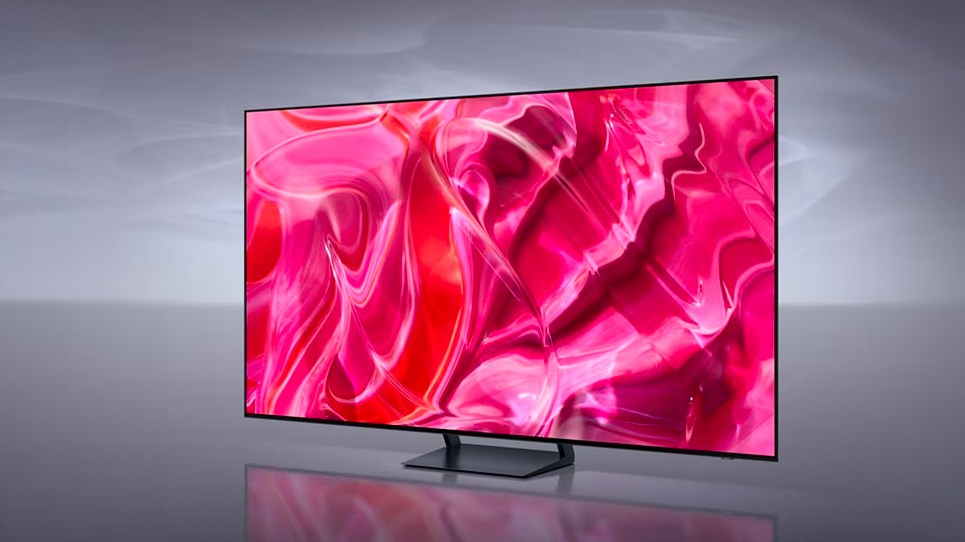

Last year we got a rare thing in the world of TVs: a new kind of screen technology, writes Matthew Bolton, Managing Editor, Entertainment. QD-OLED arrived in 2022, but it made only a minor splash; the first TVs with it either had issues, or were extremely expensive. But that changed in 2023 – so much so that Samsung dethroned the long-reigning king of OLED TVs, LG.
The Samsung S90C was the key player in this coup, taking home our TV of the Year award in recognition of how completely it changed the game in the best-selling mid-range OLED TV space. The LG C3 was its main competition, and might have been expected to be our pick as the best OLED TV for most people, just as the LG C2 was last year. But the Samsung S90C was significantly brighter than the LG model, with better sound, and just as good image quality and features – and for the same price.
Samsung didn’t have everything its own way this year, though. Hisense and TCL put real pressure on the company’s more mid-range TVs by making astoundingly affordable mini-LED models that took contrast to new levels for the price. The Hisense U8K and TCL QM8 were the standouts, and both also pack the latest gaming tech.
It all means that things should get especially interesting next year. LG will want its OLED crown back, so we hope it’ll bring its high-end MLA OLED tech from the LG G3 to more affordable models. Meanwhile, TCL and Hisense both plan to push the boundaries of mini-LED tech (and good taste) with TVs that are more than twice as bright as current high-end models. We can’t wait to see them all at CES 2024 in January!
THE YEAR IN AUDIO
Sony’s crown slips, and earbuds go solid-state
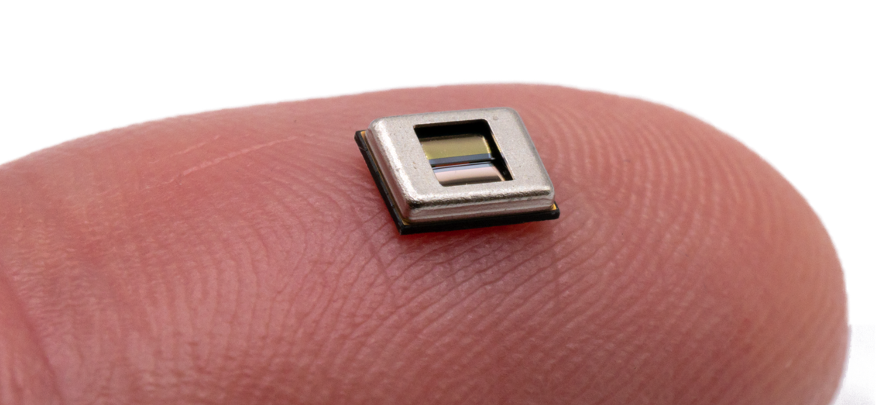

In a year that saw the launch of the world’s first-ever lossless Wi-Fi headphones (a feat we thought Sonos might achieve, but didn’t), it might seem perverse of me to lead with a rare loss of form from Sony in the headphones space, writes Becky Scarrott, Senior Staff Writer, Audio.
The thing is, the company’s flagship WF-1000XM earbuds lineup has been sitting pretty at the top of the pile for so long now (since 2019 with the Sony WF-1000XM3, to be precise) that when the Sony WF-1000XM5 arrived in July to supersede the five-star Sony WF-1000XM4, the fact that they were only good, rather than excellent, was huge. And the passing of the best earbuds crown to Technics, rather than to Bose, was perhaps even more of a surprise.
In the over-ears market, another fresh face emerged, and promptly trounced the heavy-hitters, with Edifier’s Stax Spirit S3 quickly becoming our hands-down headphones of the year, against all the odds.
Any tangible, physical music formats seeing a resurgence this year? Why yes – the CD. Take a gander at the Yamaha 5-disc CD changer, which launched in November, and the high-end Hegel Viking and Arcam’s new CD5 (part of a quintet of hi-fi launches), both of which arrived in October.
Oh, and if you remember nothing else from this missive, note the names xMEMS Labs and Creative Technologies. This year the two companies altered wireless audio for good by announcing the first ever solid-state driver earbuds. Back in April, xMEMS Labs unveiled the world’s first solid-state speakers; teeny tiny little devices meant to replace voice coils and magnets, aka the beating heart of our sound systems since loudspeakers were invented over a hundred years ago. And, thanks to Creative Technologies, the tech is coming to a set of earbuds near you, soon…
THE YEAR IN CAMERAS
Hate it or embrace it, AI imaging is here to stay


AI’s presence in the photo and video world has been unavoidable in 2023, writes Timothy Coleman, Cameras Editor. From fooling judges and winning photography competitions to powering the biggest update Adobe Photoshop has received in a decade, not to mention the most capable autofocus systems in the latest and greatest mirrorless cameras like the Sony A7R V, AI is the buzzword this year in cameras, as in so many other spheres.
Wherever you stand on the influence AI has had, and is having, on photography – Leica took an anti-AI step by introducing content credentials in the Leica M11-P, and Sony is set to follow suit – it’s here to stay, and it’s transforming how our cameras work. Life behind a camera will become ever easier, with future models incorporating improved autofocus algorithms, better noise reduction, and smarter lens corrections.
On the hardware side we’ve seen some cracking cameras, including the Nikon Z8 and the Panasonic S5 II, although arguably nothing groundbreaking – other than Sony sneaking in at the end of the year with the Sony A9 III. The A9 III is the first camera of its kind to use a global shutter, and we’ll be putting it through our in-depth review process in the new year to find out if it really will revolutionize high-speed and flash photography.
DJI has had a spectacular year, launching the best consumer drones ever. We recognized the improvement in camera hardware by awarding the triple-camera DJI Mavic 3 Pro the top prize as Best Camera Device in the 2023 TechRadar Choice Awards – the first time a drone has won this award.
I think next year could bring some fantastic new cameras, such as the long-rumored Fujifilm X100V successor. It’s also not completely unrealistic that DJI could enter the mirrorless camera space, trickling Ronin 4D tech into a handheld interchangeable lens camera. Expect some new pro sports camera tech too, what with the Paris Olympics taking place in the summer.
THE YEAR IN FITNESS
Ringing the changes as we close in on peak fitness watch
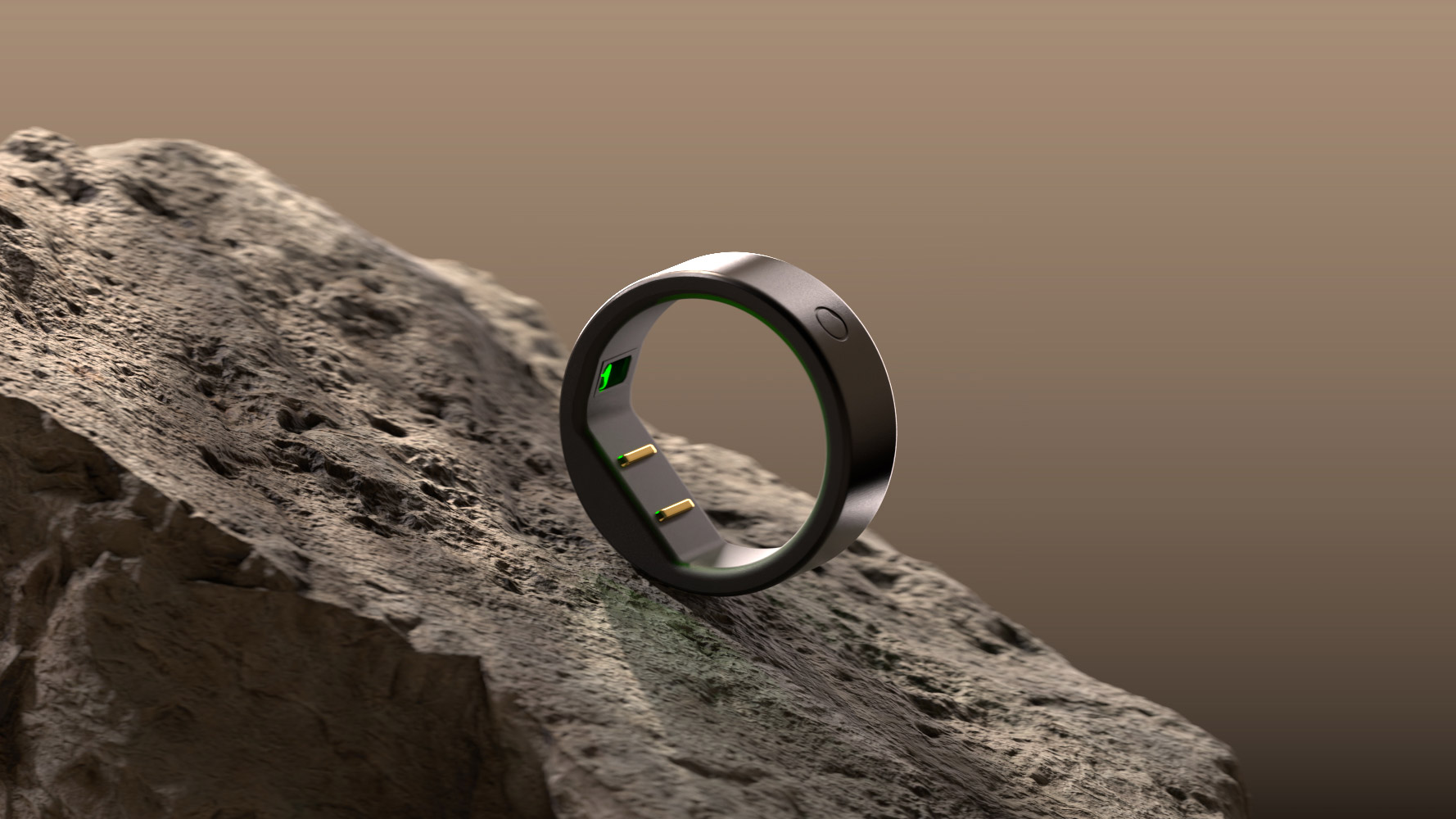

In many ways 2023 felt like a bridge year of sorts for my fitness beat, writes Matt Evans, Fitness and Wearables Editor. The smartwatch industry, by far the topic I write about the most, seems to be running out of room for growth. Once you’ve put a credit card and an iPod on your wrist, and you’re able to monitor every wellness metric under the sun, where else is there for watches to go?
Garmin now monitors your naps, and Wear OS 4 incrementally improves battery life, but it’s Apple that has led the innovation this year with Double Tap, the first on-wrist, gesture-led controls, and we’re expecting to see similar functionality introduced on more devices in 2024. Apple also made a big push around its new watches being its first ‘carbon neutral’ wearables, although we took a good hard look at the validity of those claims.
While smartwatch growth appears to have slowed, smart rings are just getting started. Many people who are interested in wellness tech conversely also want less connectivity, and smart rings offer the convenience of fitness tracking and NFC payments without emails and notifications. Search volume for terms including ‘smart ring’ doubled in the last 12 months, and with the Ultrahuman Ring Air and Circular Ring disrupting the Oura Generation 3’s hold on the market, and Samsung and Apple both experimenting with the technology, the wearables industry will continue to push in this exciting new direction.
It’s much the same story with e-scooters, e-bikes and running shoes as it is with smartwatches – innovation continues to be incremental. The Cowboy Cruiser e-bike, which I tried this year, is like an iPhone on wheels, a lovely software-driven road-cycling experience, but the tech inside it hasn’t filtered down to more affordable bikes just yet – hopefully that changes next year.
If you’re looking to invest a little more in your health in 2024, make an appointment with TechRadar during the first week of January, as we’ll be running Get Fit For ’24, featuring a raft of content to help you use tech to get, or keep, active this year.
THE YEAR IN VR
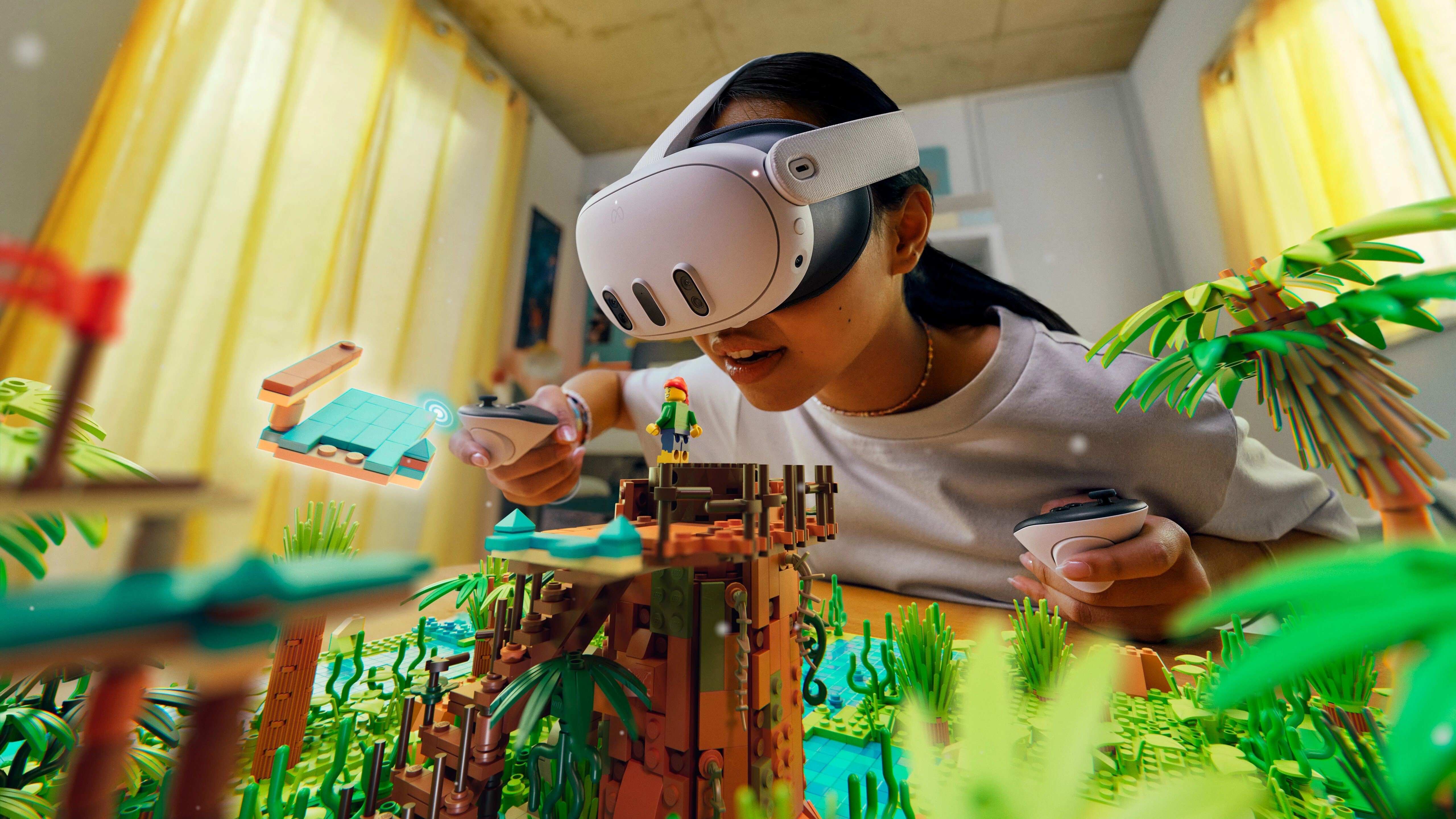

For the past few years VR has felt almost stagnant, writes Hamish Hector, Senior Staff Writer, News. Meta had dominated the space with its Oculus Quest 2 since October 2020, and all who challenged it failed to generate enough buzz to slow down this seemingly unstoppable force of affordability and standalone VR performance. That changed in 2023.
Admittedly, the Quest 2 killer was Meta’s own Quest 3 – we awarded it five stars in our review – but this new headset is more than just an upgrade. It’s a revolution in the VR space that dramatically improves on the Quest 2’s performance, and adds full-color mixed reality – making a feature I’ve previously called niche and worthless something I now can’t get enough of.
But Meta would be wise not to rest on its laurels. After years of rumors, we finally saw the Apple Vision Pro in all its glory in 2023. The gadget hasn’t gone on sale yet – with rumors pointing to a release date any time between January 1 and March 31 – but when it does arrive, by all accounts it’ll be a gamechanger. Developers are excited for the unique opportunities this souped-up XR headset brings, and our own Lance Ulanoff was blown away by the ability to shoot spatial video on an iPhone and view it on the headset. The only downside is that it costs a (virtual) arm and a leg – the cheapest Vision Pro will be $3,499 (around £2,800), where the Meta Quest 3 is just $499.99 / £479.99.
2024 also saw the debut of the PlayStation VR 2. While it proved a hit with reviewers – including our colleagues at TRG – the Sony headset has fallen into the same trap as its predecessor. Yes, the tech is great, but it’s pricier than the competition, and it doesn’t have enough software to keep people engaged. Apple should pay attention – we don’t want to be saying the same thing about the Vision Pro this time next year.
THE YEAR IN ENTERTAINMENT
Netflix cracks down on sharing amid hikes and strikes


It’s a huge understatement to say that 2023 has been eventful for the entertainment industry, writes Tom Power, Senior Entertainment Reporter. The past 12 months have been full of ups and downs – mostly the latter, mind you – for studios, the world’s best streaming services, those who work in the sector, and anyone who enjoys watching good (or bad, I’m not judging!) movies and TV shows.
On the streaming front we saw Netflix implement its controversial password crackdown, numerous streamers increase the cost of their various subscriptions, the merger of HBO Max and Discovery Plus into the super-streamer Max, plenty of fury-inducing TV show cancellations, and Disney taking full control of Hulu. Still, at least there were lots of binge-worthy series to include in our best shows of 2023 guide.
The news cycle was dominated by the longest-ever actors and writers strikes, with production on multiple movies and shows affected for months. Movies-wise we experienced the cultural phenomenon known as Barbenheimer, which saw fans flock to cinemas to watch Barbie and Oppenheimer back-to-back in the summer, while The Super Mario Bros. Movie and Five Nights at Freddy’s proved that films adapted from video games can be wildly successful.
It wasn’t all good news at the box office, though, with several Warner Bros. Pictures and Disney films failing to capture viewers’ attention (but there were plenty more fantastic flicks that made it onto our best movies of 2023 list). Oh, and let’s not forget the headache-inducing year Marvel had, with multiple MCU movies delayed, uncharacteristic box office bombs, condemnation of its treatment of visual effect artists, and the firing of Kang actor Jonathan Majors after he was convicted of domestic abuse charges.
Here’s hoping for a calmer 2024 for the entertainment sector, with plenty of top-tier new movies and shows to watch.


